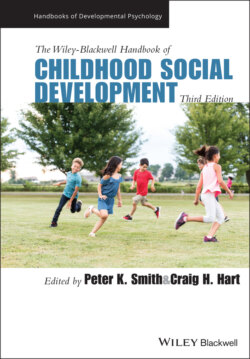Читать книгу The Wiley-Blackwell Handbook of Childhood Social Development - Группа авторов - Страница 93
The Politicization of Parenting and Child Socialization
ОглавлениеThe neoliberal influence on family as a civic institution is seen in UK social policy engulfed by discourses of individual freedom, choice, and entrepreneurship, encouraging parents to approach child rearing and socialization as a project that aligns with the market irrespective of the social structures of their life. The rise of commodification and competitiveness across the social realm has propelled new understandings about families and the role of parents in socializing their children. Parents are increasingly expected to resolve what would otherwise be conceived as structural problems through “a double movement of autonomisation and responsibilisation” (Rose, 1999, p. 476). Parents are seen at once as autonomous in terms of being able to carve a destiny for themselves, regardless of the constraints of their life, but also responsible for their children’s destiny and life chances.
The individualization of social problems underpins the politicization of parenting, which relies on an assumed causal relationship between parenting, child socialization, and future outcomes with good parenting being key to upward social mobility (Gillies, 2008). Socialization as a political duty to enhance children’s future prospects has gained traction in family policy in the United Kingdom (Brown et al., 2015). Children are seen as future investment, perpetually accruing capital through self‐improvement, and parents are encouraged to make the “right” choices. As Wyness (2020) argues, creating the responsible parent becomes a matter of engineering the right attitudes and aptitudes, a sense of empowerment that aligns with the “aspirations of free citizens” (Rose, 1999, p. 49). This has implications for how parents relate to their children and transmit these attitudes and aspirations through socialization. In this context parenting and child socialization are transformed from a web of experiences and relationships to an act of competence, individual responsibility, and public accountability (Gillies, 2008).
